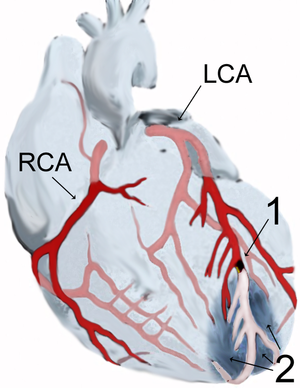[amazon_link asins=’B001167VIQ,B009JXPS6U,B00JYHNNYK,B005H05SXM,B00JGPAGK4,B00TQJWF1I,B005H05T4K,B01ER18O1E,B0084002LK’ template=’ProductCarousel’ store=’finmeacur-20′ marketplace=’US’ link_id=’0d707ec7-8387-11e8-bbdf-23dde9b62bce’]
Children and teens who have high blood levels of chemicals used in the production of non-stick cookware may be more likely to have elevated LDL cholesterol levels, according to a report.
Humans are exposed to perfluoroalkyl acids, such as PFOA and PFOS, through drinking water, dust, food packaging, breast milk, cord blood, microwave popcorn, air and occupational exposure.
Recent survey results reported detection of these chemicals in almost all people in the U.S.
Newswise reports:
“[Researchers] assessed serum lipid levels in 12,476 children and adolescents (average age 11.1) …
[H]igher PFOA levels were associated with increased total cholesterol and LDL or ‘bad’ cholesterol, and PFOS was associated with increased total cholesterol, LDL cholesterol and HDL or ‘good’ cholesterol.”
Resources:
Newswise September 6, 2010
Archives of Pediatric & Adolescent Medicine September 2010; 164(9):860-9
Related articles by Zemanta
- High Cholesterol Linked to Cookware Chemicals (webmd.com)
- Compounds in non-stick cookware may be associated with elevated cholesterol in children and teens (scienceblog.com)
- Compounds in non-stick cookware may be associated with elevated cholesterol in children and teens (eurekalert.org)
- Non-stick chemical linked to raised cholesterol (ctv.ca)
- Chemicals in Rugs, Cookware May Be Linked to Raised Cholesterol in Teens (nlm.nih.gov)
- Non-stick chemicals linked to high cholesterol in kids (cbc.ca)
- Non-stick Cookware And Waterproof Fabrics Linked To Higher Cholesterol Levels In Kids (medicalnewstoday.com)
- Non-stick pan ‘cholesterol link’ (bbc.co.uk)
- Study links cholesterol and nonstick coating chemical (msnbc.msn.com)












![Reblog this post [with Zemanta]](https://i0.wp.com/img.zemanta.com/reblog_e.png?w=580)











